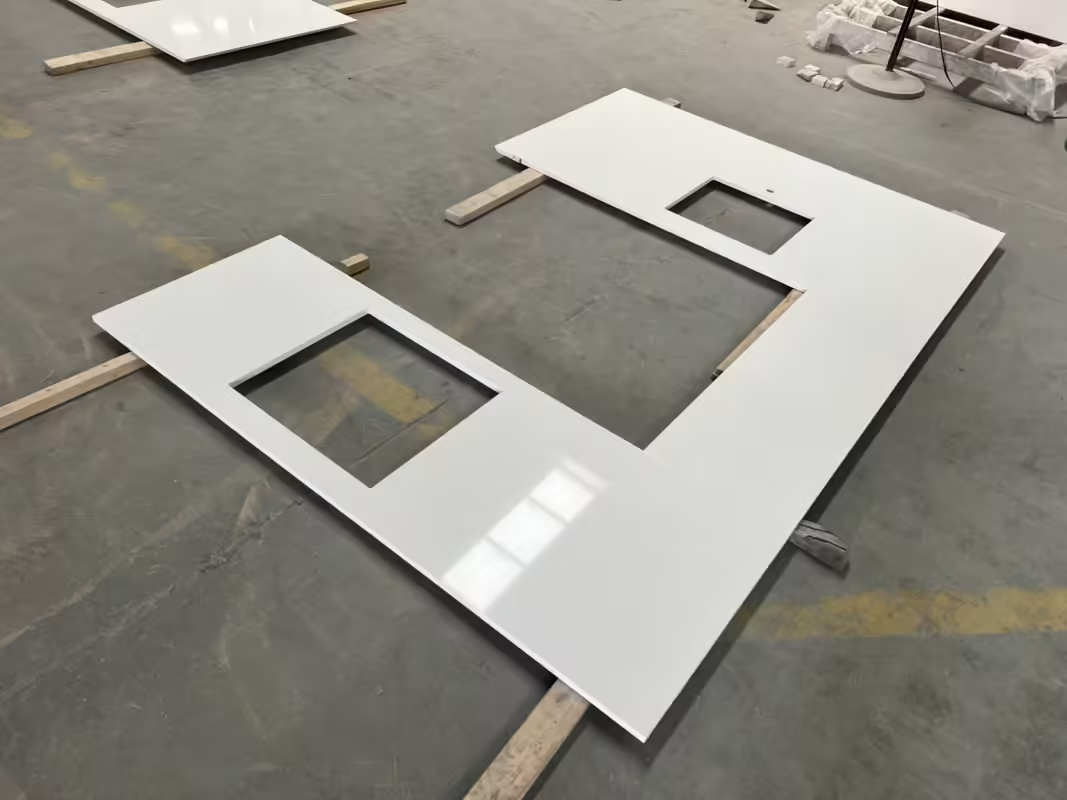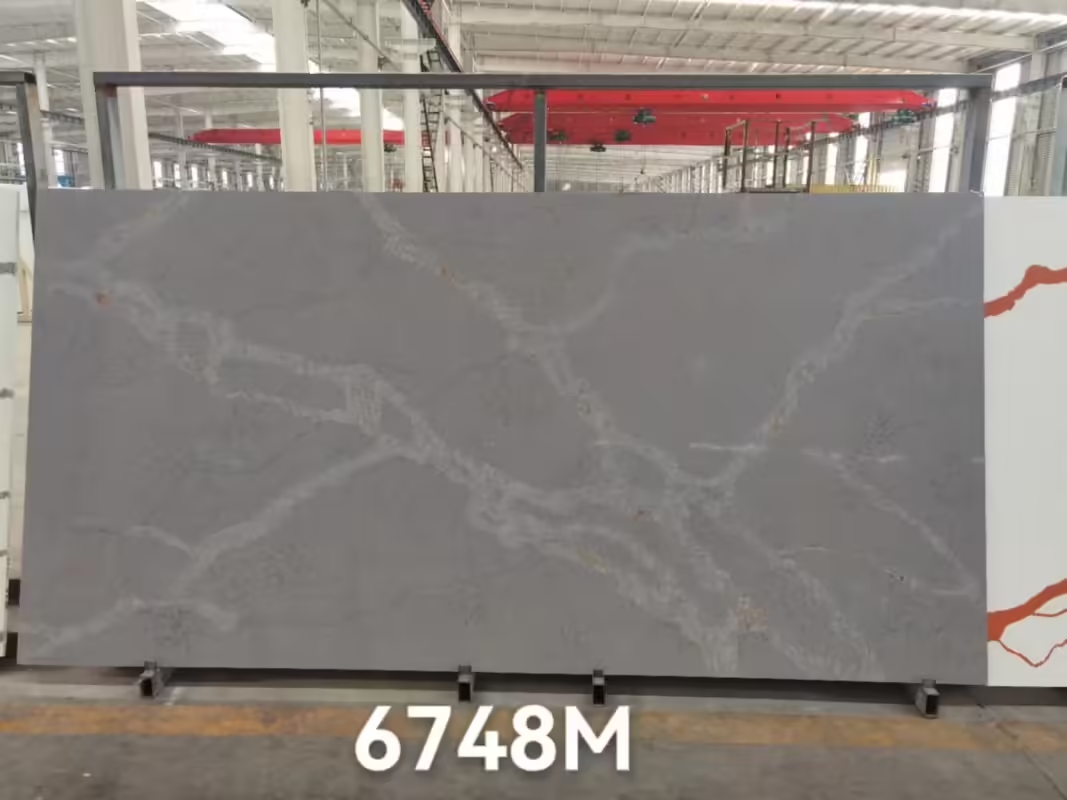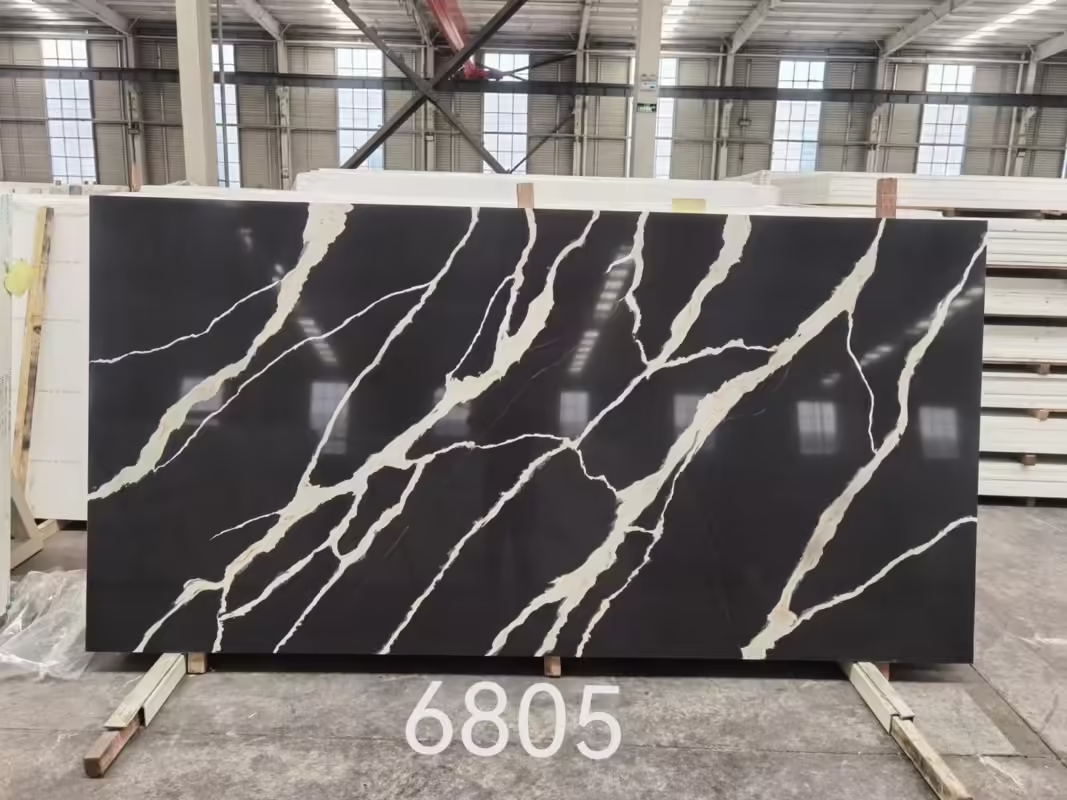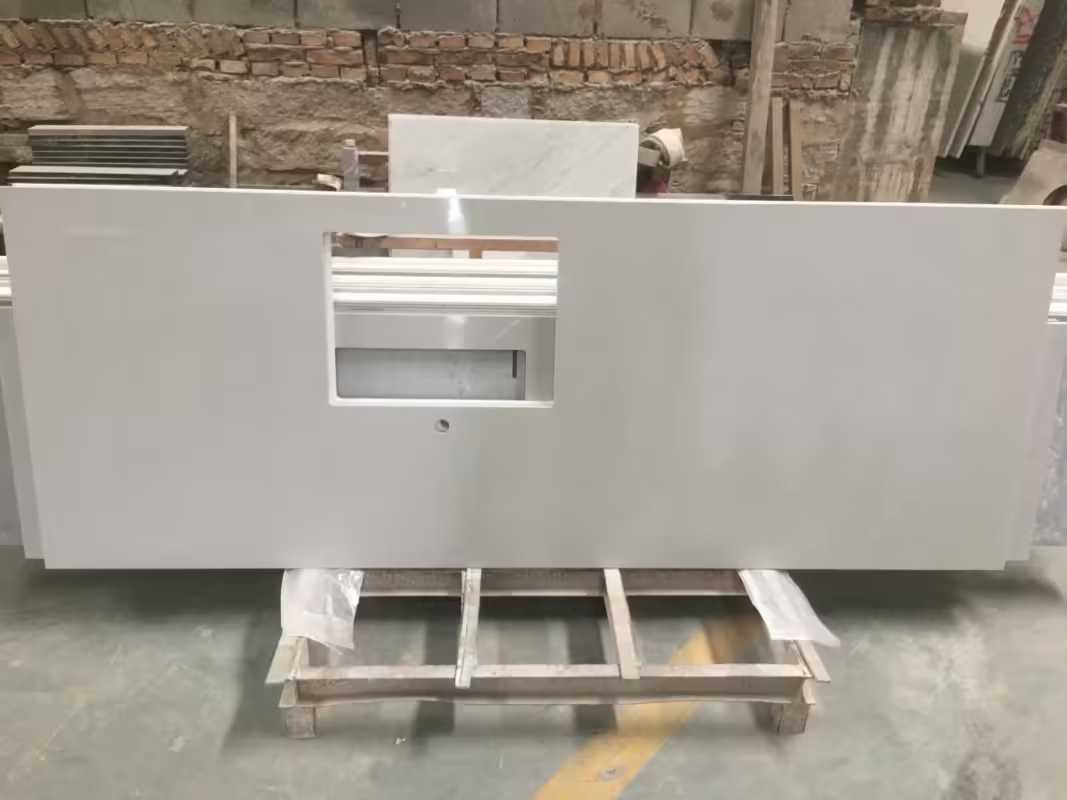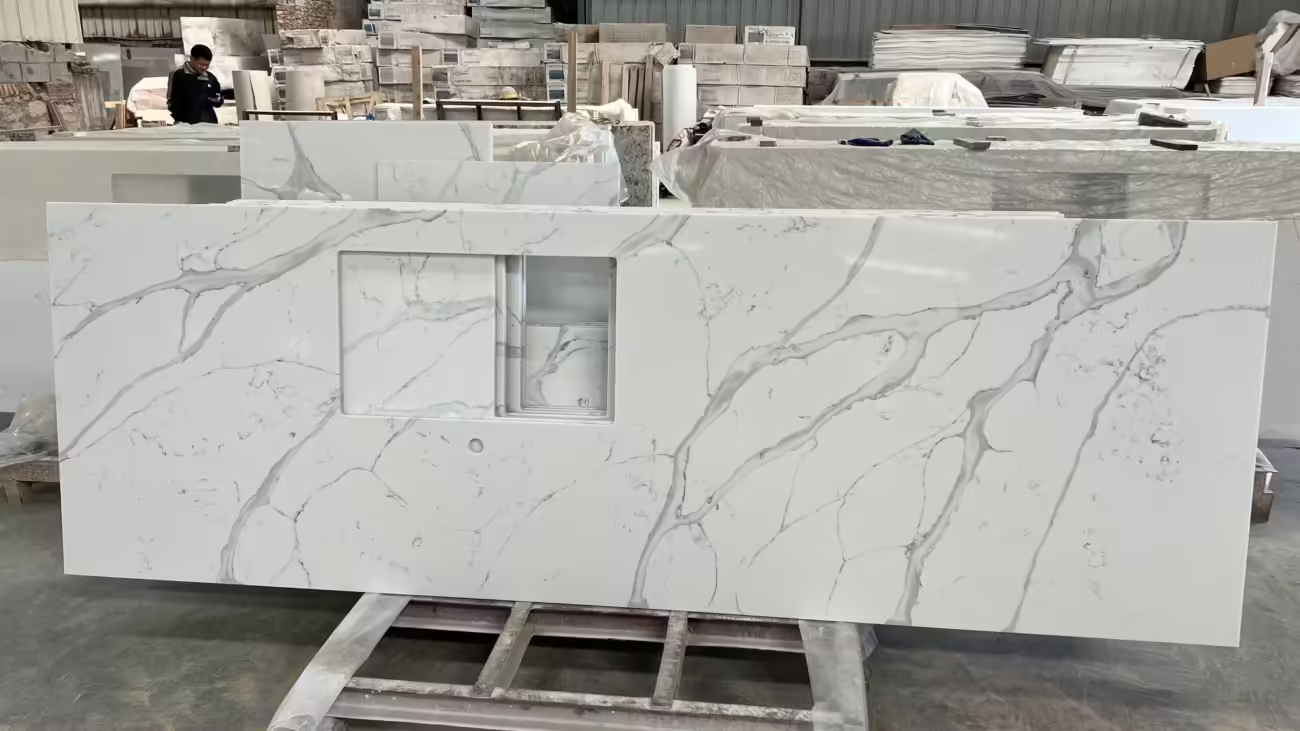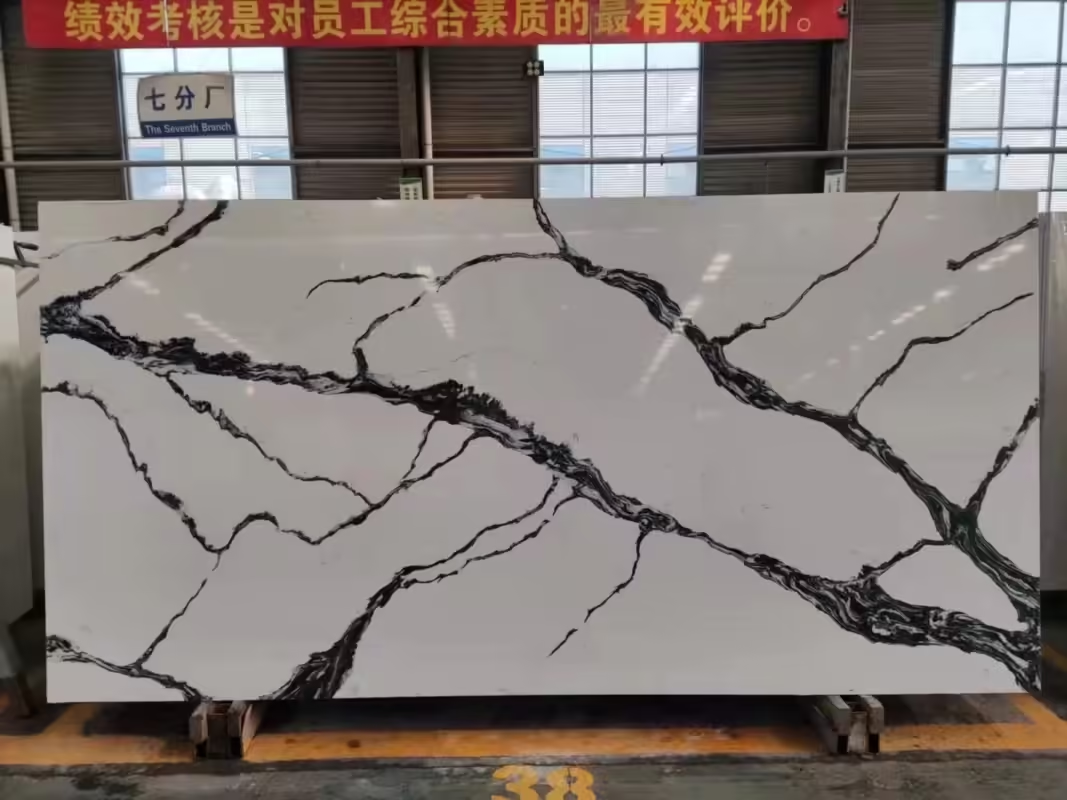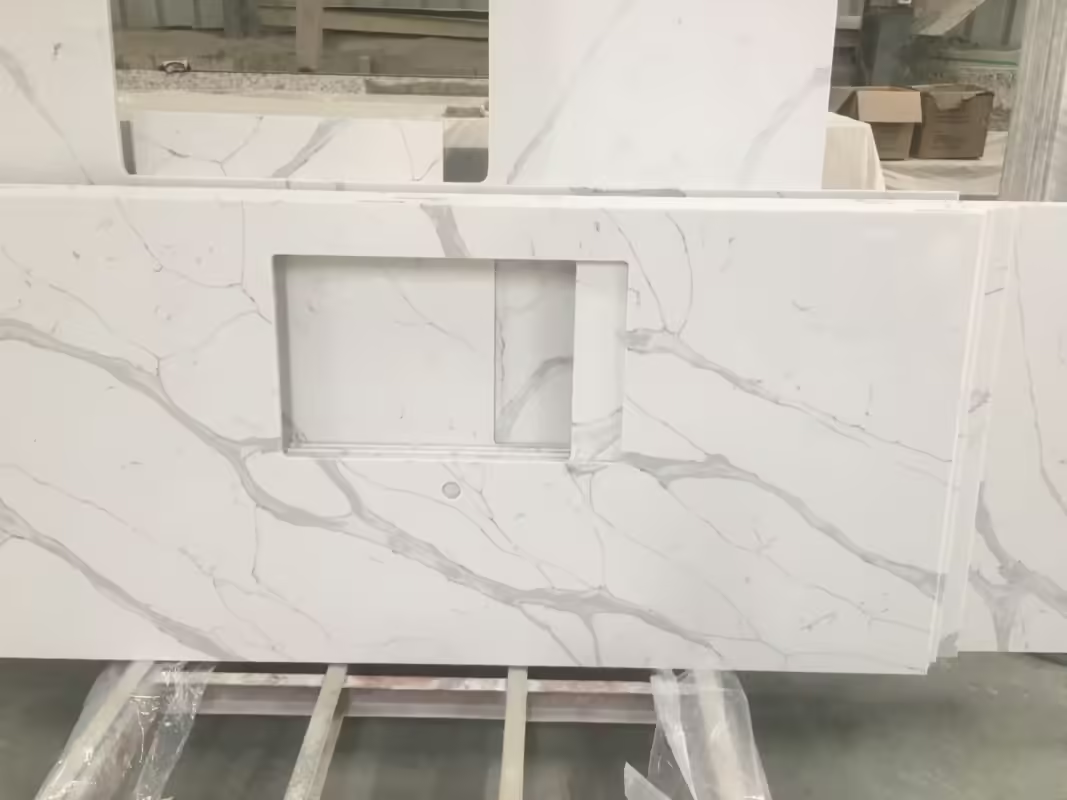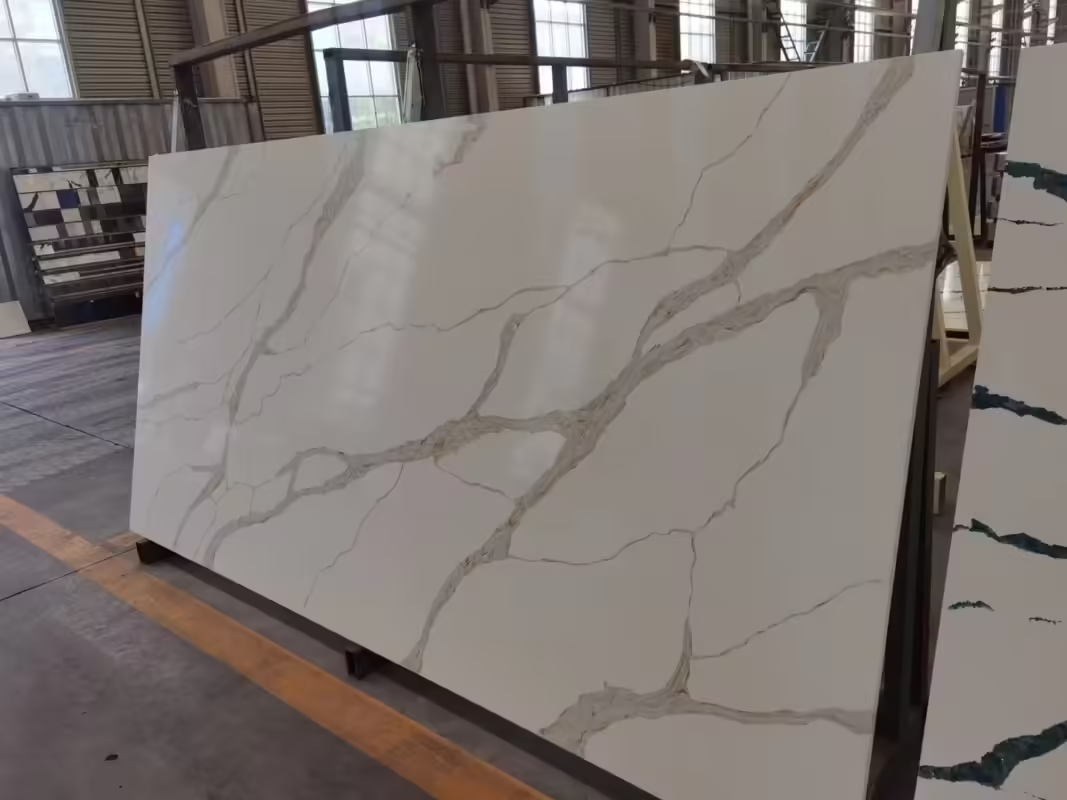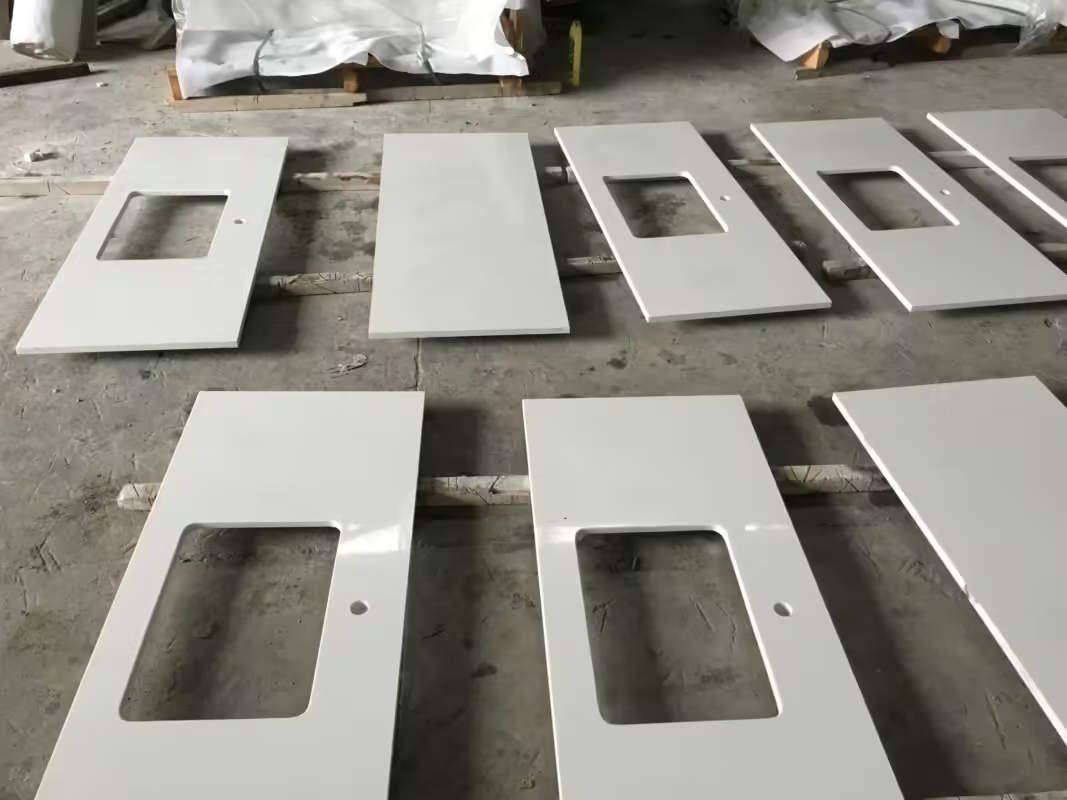When considering materials for flooring, countertops, or wall applications, durability is a key factor. Artificial quartz stone and porcelain tiles are two popular choices known for their resilience and longevity. But how do they stack up against each other in terms of durability?

Artificial Quartz Stone:
- Composition: Made from approximately 90% natural quartz particles combined with polymer resins, artificial quartz stone is incredibly hard and durable.
- Impact Resistance: Quartz is highly resistant to scratches and impacts, making it ideal for high-traffic areas in homes and commercial spaces.
- Heat Resistance: Quartz withstands moderate temperatures well, though it is advisable to use trivets or pads for very hot objects.
Porcelain Tiles:
- Material: Porcelain is a type of ceramic tile that is fired at higher temperatures, making it denser and less porous than ordinary ceramic tiles.
- Hardness: Porcelain tiles are known for their hardness and rigidity. They are highly resistant to wear and tear, making them suitable for both indoor and outdoor uses.
- Water Resistance: Due to its low porosity, porcelain is exceptionally resistant to water and moisture.
Conclusion: Both materials offer high levels of durability, but the choice depends on the specific requirements of your project. Artificial quartz is preferred for areas where aesthetic uniformity and minimal maintenance are priorities, whereas porcelain tiles are excellent for high-moisture areas and where a variety of textures and finishes are desired.

